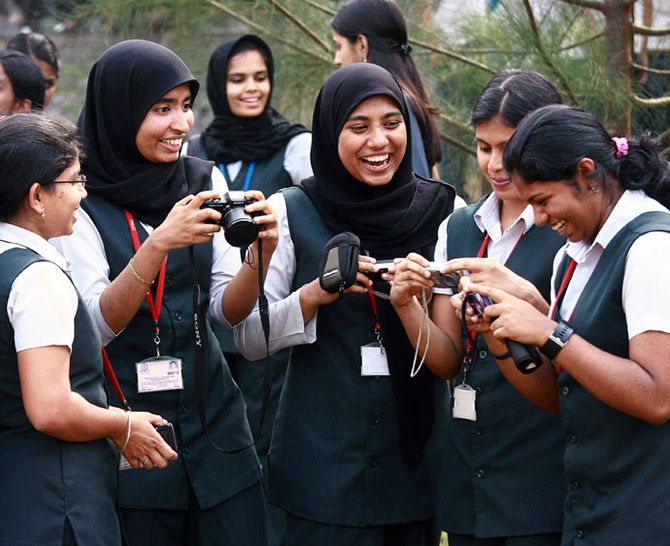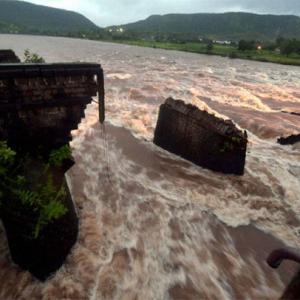No country has grown without educating its people. India's shameful lag in primary and secondary education has persisted for several decades, and the crisis in higher education is now threatening a social and political calamity, says Ashoka Mody, Charles and Marie Robertson visiting professor in international economic policy at the Woodrow Wilson School, Princeton University.

India's economic policy-makers have sought to induce short spurts of growth in the hope that these spurts would pull up institutions and infrastructure essential to support the next round of growth. But we are now at a moment when failure to mount a big push in critical areas will not only hurt short-term growth prospects but will also prevent the virtuous possibility of growth creating its own momentum.
Dealing with acute water crisis is the immediate priority. In principle, as the economy advances, additional funds and new technologies will help renew our water resources. But perhaps we have lost this race. Additional growth will further deplete water reservoirs, and by the time we are ready for the heroic response needed, the crisis would have turned into an unstoppable catastrophe.
We have reached the same critical juncture in education. From the industrial revolution in the late-18th century to today, one -- and only one -- variable is resolutely correlated with growth.
No country has grown without educating its people. India's shameful lag in primary and secondary education has persisted for several decades. The crisis in higher education is now threatening a social and political calamity.
Students with "grace marks" are pushed into the competition for college seats. Lakhs apply for hundreds of slots. When they get to their colleges, teachers and infrastructure are scandalously missing. Even in Delhi University, Professor Shobhit Mahajan reports, blackboards, classrooms, and laboratories are in a dreadful state.
We are celebrating the 25th anniversary of "reforms." Why is the state of education so abysmal? Why has growth not pulled up education? Could it be that educational institutions are mired in a network of patronage, which benefits those who have access to public funds but have no incentive to provide real education and may actually see it in their interest to hold education back? Meanwhile, in an ever more competitive global economy, the next generation of aspirants is ever better educated. We are left struggling to handle international competition abroad and at home.
The imploding Gujarat economic "miracle" is a warning. The Dalits have reason to feel left behind despite years of public effort to pull them up. The Patels are up in arms because they lack privileged access to education, and those certified as "educated" lack jobs. The traditional textiles, gems, and engineering industries are floundering because the global market is weak and, in the domestic market, it is hard to compete with Chinese imports.
Abandoning its bureaucratic caution, the World Bank warns: "In a young and increasingly aspirational society, this growing jobs deficit has the potential to turn the much-awaited demographic dividend into a demographic curse."
Our cities, with their endemic diseases and violence, work only in the sense that we have come to believe that this is the way things are. Corruption in public health, medical practice, and police departments make it ever harder to regain the basics of civilised existence.
Through these evolving pathologies -- be it dying water resources, the erosion of education, or collapse of cities -- runs one thread.
The system encompasses district councillors, state legislators, building contractors, and local hooligans. The public hungers for a glimpse of idealism, such as that tantalisingly offered by the Aam Aadmi Party, but idealism is quickly crushed. The incentives and behaviour powerfully perpetuate themselves, ensuring a bleaker future.
Leaders respond by promising more labour market reform (easier firing of workers), the goods and services tax (GST), and visions of "start-ups" and "smart cities." The guiding philosophy is one of "incrementalism," the idea that little steps will keep growth chugging and deeper institutional change will follow as India becomes richer.
But the leaders are not even able to deliver on these baby steps. They remain endlessly fascinated by their economic strategies and political games, much like the drunkard who looks for his lost keys under the lamppost because that is where the light is. We keep our morale up by repeating stories of incredible individuals who have pulled themselves out of dire poverty. Meanwhile the erosion of water resources, education, and cities continues.
Offering an alluring alternative, Nandan Nilekani, the hi-tech entrepreneur and public intellectual, has described a vision in which millions will connect on smart phones to their bank accounts and public services. Thus connected, they will access new sources of education and create quality jobs in a system with greater integrity and accountability. Indeed, countries have "leapfrogged" over dysfunctional institutions and infrastructure into to a new era of growth. But relying on technology as the elixir may well be another instance of looking under the lamppost. Technology without new institutions and incentives will never renew water or deliver core education, health services, and public safety.
The race is on. We can choose business as usual and place our faith in optimistic rhetoric and the power of technology. But if we delay national mobilisation to confront and address our fundamental problems, the challenge will become greater and our failures could soon overwhelm us.









